Opinion
Stemming tide of misinformation
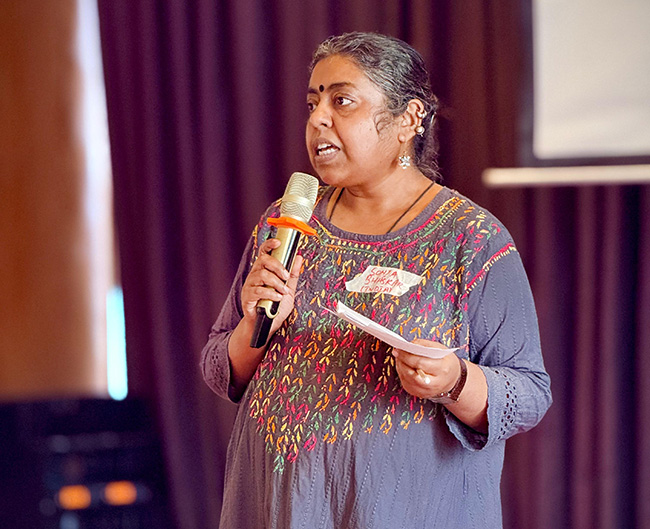
by Ifham Nizam
In an era where misinformation spreads at an unprecedented rate, organisations like DataLEADS are taking proactive steps to address this growing challenge, particularly on social media platforms. Sonia Bhaskar, Programme Head at DataLEADS, an organisation based in India, speaks to The Island about the organisation’s initiatives to strengthen the fight against disinformation and empower communities with accurate information.
“At DataLEADS, we are committed to tackling misinformation and disinformation through a combination of technology, training, and grassroots initiatives,” says Bhaskar. “We believe that authentic information is essential for empowering individuals and protecting the integrity of democratic processes.”
Excerpts of the interview:
Q: At DataLeads, what are the most effective tools and strategies you employ to tackle the growing issue of misinformation and disinformation, particularly on social media platforms?
A: DataLEADS is a globally recognised award-winning digital media and tech company, leading conversations on Information, and AI ecosystem globally. At the core of our work lies a profound belief that authentic information is central to human empowerment. In this direction there are numerous programmes and key interventions we have initiated.
1. Building Fact-Checking Capacities in India
In partnership with Google News Initiative, we run one of the world’s biggest fact-checking and training networks the Google News Initiative-India Training Network, which has benefitted hundreds of organisations, local governments, newsrooms, universities and local communities in India. This initiative adopted the Training-of-trainers (ToT) model to initially train about 250 journalists, who in turn trained not only journalists in their newsrooms but also other newsrooms and students of mass communication and journalism all across India. So far as part of this initiative over 70,000 journalists and media students at over 25,000 newsrooms and media schools based in 28 states of India have been trained.
2. Building India’s Largest Media Literacy Network
The problem of misinformation/disinformation is not just a journalism problem but it affects all sections of society and has larger ramifications on democracy and what sources of information people tap into and trust. This prompted us to create Factshala – a network of trainers from different walks of lives, who in turn undertook training in their networks and communities and reached millions of people across the country from Tier-2, Tier-3 cities and villages to build community surveillance and intelligence against misinformation. The initiative has reached more than 66 million people across India in the last five years.
3. Strengthening the fact-checking Ecosystem to tackle online election related misinformation and deepfakes
We are also currently running the Shakti Collective initiative which has brought fact-checkers and publishers from across India together to address election-related misinformation and deepfakes. It is the biggest collaboration between fact-checkers and newsrooms in India to protect elections from misinformation. Together, this consortium between March and June 2024, distributed 6,600+ fact-checks during the world’s biggest elections, the General Election in India. This was a 92% increase in number of fact-checks published, 180% increase in regional language fact-checks, which were amplified in 10+ languages covered. This effort amounted to 4x increase in teams actively engaged in countering election-related misinformation.
As part of the Collective we also had an advisory council for AI and Deepfake detection. It had the best tech minds and academicians in the country, a Supreme Court lawyer and also international tech partners with access to tools to facilitate deepfake detection and also conduct masterclasses and trainings for the Collective members.
Over the years, we have also run specially designed visual workshops and boot camps for media colleagues and newsrooms in India. We are committed to building new competencies, collaborations and networks across the globe to strengthen information resilience and integrity and helping communities unleash their creativity at work. With Asian Dispatch, Global Data Dialogue, and the Shakti Collective we are building new networks and platforms to engage different stakeholders to build new conversations and scale the impact of our work.
AI is often touted as a solution to detecting and combating misinformation. What role do you see AI playing in identifying fake news and deepfakes, and how reliable are these tools in the fight against digital deception?
There are no tools, AI driven or otherwise, where you can feed in information and it can declare it true or false. Tools are to be applied to facilitate investigation and then fact-checkers and journalists need to follow due process to verify the sources, ask the right questions and if need be pick up the phone and make calls. Good old journalism practices are needed more than ever before and the essence of journalism, which is defined by the need to verify everything, needs to be followed. This is irrespective of the advent and rise of AI or any other technology in future.
There are tools that are being developed as deepfake detection tools. But these tools cannot be relied up on completely for accurate results. They have been known to give inaccurate results, and sometimes can falter when parts of real images are mixed with AI generated components. The reason for these errors could range from limited datasets, lack of properly trained data, lack diversity in data in terms of languages, race, ethnicity or just inherent biases. The fact is also that these tools are built by and large by tech companies but detection tools are playing catch up to the advancements in tools to create AI generated content, since more money is being invested by big tech companies to develop AI tools rather than build guardrails and tools to detect misuse of these tools.
Q: What role do you think digital literacy plays in addressing the problem of misinformation? How can organisations, governments, and educational institutions better equip individuals to navigate the digital world responsibly?
A: Misinformation, disinformation, propaganda and false claims and so on cannot be abolished. They have existed in the past and will always be there. What has changed is the ease of creating and disseminating these materials, thanks to social media and its ubiquitous presence in everyone’s hands thanks to the proliferation of mobile phones with internet access. So any effort to combat misinformation will not succeed without a robust media literacy plan for the masses belonging to different age, gender, ethnicity, covering as many languages, regions and socio-economic backgrounds.
The first step to fighting misinformation is the need to assess the content being consumed, apply critical thinking and verify the information. Given the sheer volume of the content being generated online, across so many varied platforms, media literacy assumes greater significance, today everyone with a phone is a content creator but more importantly there is more content available but quality check is missing. The rise of social media has come at a time when traditional sources of credible information are crumbling due to faulty financial models, ownership issues and diminishing freedom of press. The erosion of trust in mainstream media is too real and increasingly proving to be problematic in a world where misinformation and disinformation not only spreads faster but it is getting easier to produce with AI generated tools. As AI tools evolve, it will get increasingly difficult to distinguish between what is real and what is fake.
Awareness among people to not just identify misinformation and disinformation but also verify and stop its spread will assume importance.
Tackling a problem of this magnitude requires a 360° degree approach and effort from all stakeholders – in developing curriculum and in implementing it in a manner that bridges the digital divide to reach all, down to the last mile.
Q: Fact-checking has become a vital part of journalism today. What unique challenges do fact-checkers face when dealing with the sheer volume of content online, and how can AI help or hinder their work?
A: Fact-checkers face a problem of reach. They depend on the same platforms for distribution of fact-check, which are spreaders of misinformation. They also face the issue of scale, and may lack the resources to scale up operations in different languages and establish presence in the various platforms, past and present. There is also the challenge of making fact-checks available in different formats from articles to vertical videos like Youtube shorts or Instagram reels.
The other big challenge is that of ability to cover all the misinformation that is floating and priortising what to fact-check. Currently, most fact-checkers in India, especially the independent ones that are not part of a larger newsroom or organisation, struggle for financial avenues to sustain and grow operations and currently lack the monetary muscle to invest in R&D and even AI to increase their productivity and efficiencies to scale up their fact-checking and verification work.
Q: What do you consider the biggest strengths of AI when it comes to improving the efficiency and accuracy of journalism? Many people still fear the potential of AI to replace human jobs or make unethical decisions. What do you think are the biggest misconceptions people have about AI, and how can we educate the public on its potential benefits and risks?
A: In an era of resource crunch that most newsrooms face, AI can help free up resources by taking over repetitive, mundane tasks that currently need manpower, to reduce time taken for production of news. These could be functions that can be templatised – like stock market reports, weather reports, game scores etc.
AI can also facilitate distribution of news by personalising the dissemination based on preferences of readers (for example, creation of personalised newsletters) or even maximise ad revenues through contextualising ad placements. It can also be used to scrape comments and ease the work of sorting and replying to comments. It can facilitate SEO functionalities, transcriptions, subtitling, translations (dependent on the tool’s language capabilities).
AI tools that can generate images or videos based on text prompts can also be deployed strategically for innovative storytelling. But Newsrooms need to have guidelines specifying dos and don’ts and ethical and responsible use of AI. The most important factor to keep in mind is ensuring that no step in the workflow that involves taking decisions or publishing news to the public domain is taken by the machine, steps where human intervention will be crucial needs to be well defined and critical for responsible deployment of AI. So, in that sense, training and upskilling of newsroom staff needs to be undertaken to ensure that we have a future proof newsroom where staff is ready for the new jobs that are created while some of the old functions get taken over by machines.
Opinion
The second term of Donald Trump: What could we expect? – Part II
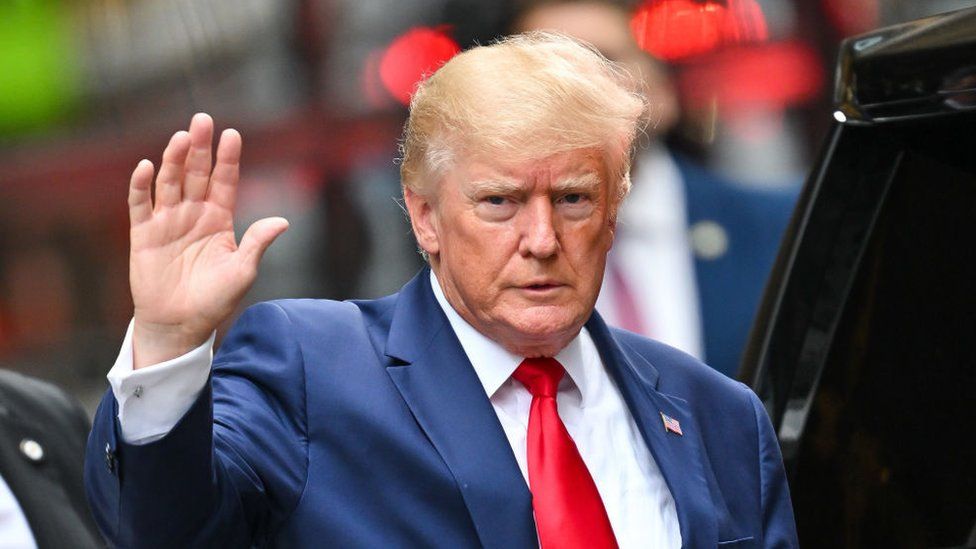
by Tissa Jayatilaka
(This article is based on a talk given to the members of the Sri Lanka Foreign Service Association on the 10th of December, 2024. First part of it appeared in The Island of 01 Jan. 2025).
Karl Rove, a veteran conservative political operative, wrote recently in the Wall Street Journal as follows:
Rather than for any particular skill or competency, Mr. Gaetz was selected because he promised he would spite Mr. Trump’s enemies within the Justice Department and hound his opponents outside it. Senator Markwayne Mullin, the junior senator from Oklahoma, essentially said much the same when he said, “I think the President wants a hammer at the Department of Justice (DoJ), and he sees Matt Gaetz as a hammer”. When asked if she would vote for Gaetz, Senator Marsha Blackburn said that she and her fellow Republicans are ready to support “every single one of Trump’s nominees”. Trump’s replacement nominee for Attorney General Pam Bondi, the senior senator from Tennessee has vowed to pursue Trump’s retribution agenda.
The Department of Government Efficiency or DOGE was first announced by Donald Trump about a month or so ago. Elon Musk and Vivek Ramaswamy, two billionaires and possibly the two highest financial contributors to Trump’s election campaign are to be in charge of the new department. Trump envisions that DOGE “will become, potentially, The Manhattan Project of our time”, the President-elect wrote on his social media platform referring to a top-secret World War 11 programme to develop nuclear weapons.
Though DOGE has Trump’s support and has the word ‘department’ in its name, it is not an official government department that has to be established through an Act of Congress. Instead DOGE, it is believed, will operate as an advisory body, run by two of Trump’s right-hand men with a direct line to the White House. In an article published in the Wall Street Journal a few weeks ago, Musk and Ramaswamy said they would “serve as outside volunteers, not federal officials or employees”. Their task is to provide guidance to the White House on spending cuts and compile a list of regulations that they believe are outside the legal authority of certain agencies and ought to be revised or discarded.
Government reforms by way of major cuts appears to be the remit of DOGE. The federal bureaucracy “represents an existential threat to our Republic”, Musk and Ramaswamy have written in the Wall Street Journal. “Unlike government commissions or advisory committees, we won’t just write reports or cut ribbons. We will cut costs”. At what cost they will do so is anybody’s guess. And the pair of billionaires have threatened to slash federal regulations, oversee mass layoffs and totally shut down some agencies. We should bear in mind in this context that during his campaign to secure the 2024 Republican presidential nomination, Ramaswamy vowed to do away with the Department of Education (DoE) – – something Trump repeated days after winning the election. He released a video announcing that the DoE’s days were numbered. “One other thing I’ll be doing in the administration is closing up the DoE in Washington D.C. and sending all education and education work and needs back in the States”). For his Education Secretary, Trump has picked Linda McMohan, the co-founder of World Wrestling Entertainment, who served as head of the US Small Business Administration in Trump’s first term.
Speaking at a gala held at Mar – a -Lago in November, Ramaswamy thanked Trump “for making sure that Elon Musk and I are in a position to start mass deportations of millions of unelected federal bureaucrats out of the District of Columbia bureaucracy”.
Even before it has been officially established, DOGE has been set a deadline of 4 July, 2026, to finish its job. When announcing the new body Trump said:
A smaller government with more efficiency and less bureaucracy, will be the perfect gift to America on the 250th Anniversary of the Declaration of Independence.
These are large claims and threats indeed. Whether they could be actually implemented or not remains to be seen.
Let’s take a look at some others of Trump’s picks for top posts. They have dismayed policy circles in Washington – -including Republican lawmakers and former officials who served during his first presidency.
Trump’s proposed inner circle on the foreign-policy front, is made up of notable hawks including Senator Marco Rubio as Secretary of State and Representative Mike Waltz as National Security Adviser. Rubio is an unbelievably steadfast supporter of Israel and advocates a hardline approach to China, Iran, Cuba, and Venezuela; Waltz is a Green Beret veteran who has been one of Beijing’s fiercest critics. He has consistently supported a tough stance on China.
Fox News host Pete Hegseth, Trump’s initial pick for Secretary of Defence, raised howls of protests from even among Republicans. He is a decorated Army veteran but has little or no direct experience in the Pentagon or government. He has referred to Army generals who adhere to diversity, equity and inclusion efforts as “woke shit” and said that women should not serve in combat roles. Hegseth has been accused of alcohol abuse, financial mismanagement, and sexual misconduct. It looks almost as if sexual misconduct or allegations thereof is a pre-requisite for higher office in Trump’s second term! Happily, there are unconfirmed reports that indicate Trump now has second thoughts about Hegseth as a nominee for his Secretary of Defence. One of the names in circulation as a possible replacement for Hegseth is Florida Governor Ron de Santis.
Military veteran Tulsi Gabbard, who left the Democractic Party in 2022 and became an independent, is Trump’s nominee to be the Director of National Intelligence, regardless of her lack of direct intelligence experience. John Bolton, one of Trump’s former National Security Advisers, described Gabbard’s nomination as “hilarious” in a post on X. Bolton is on record as saying that Trump cannot tell the difference between the national interest and his personal interest.
Rubio, Hegseth (in case he remains Trump’s nominee for Secretary of Defence), Gabbard all require Senate confirmation before they can serve in their respective posts. According to information in the media Senate Republicans are unlikely to give Trump and his nominees a free pass.
Let me now take a close look at the likely main features, discernible at present, of Trump’s foreign policy during his second term. It is expected to be more of the same as during his first term; a trade war with China and hostility to multilateralism.
Steve Holgate, another of my former U.S. Foreign Service Officer-colleagues, is also an intimate friend. He has had experience working with the U.S. Congress and headed a committee staff in the senate of his home state of Oregon. Holgate, a perceptive observer of the passing political scene with whom I exchange views frequently, (which diverge at times) has pointed out, and I agree, that Trump clearly has an isolationist impulse. Trump’s vow to put “America First” and “Make America Great Again” taps into sentiments that date back to the beginnings of the American republic when George Washington and Thomas Jefferson talked of the uses of isolationism, though not as whimsically as Trump now does. What this will mean is hard to say, as he, unlike Washington and Jefferson, is totally mercurial. He has indicated that he would stop supporting Ukraine. Holgate thinks this would have catastrophic results, for not only would the United States be abandoning a troubled but functioning democracy but it, under Trump’s leadership, may also mean that the United States would be betraying and abandoning U.S. NATO allies, who have really stepped up. Not only will this be harmful in itself but it could, Holgate notes further, persuade China to conclude that the United States would do nothing if China invades Taiwan; and allow Kim (Jong Un) to recalculate the risks of invading the South. Xi has shown that he is more than willing to rattle sabres in order to distract the Chinese from their internal problems, especially on their economic front. Therefore, Xi may find it handy, Holgate opines, to strike Taiwan in order to create a spurious domestic unity. We both (i.e., Holgate and I) agree that Trump has always shown himself sympathetic to dictators and Trump would love to be one. His values are opposed to those that have held American democracy and its alliances together. Trump’s threat to impose tariffs on China, Mexico and Canada could not only cause a trade war but would, in turn, weaken the economies of the world including that of the United States. As for Israel, Trump’s impulse is to give it unlimited unconditional support – – unless Netanyahu turns nettlesome and puts Trump off. We know that everything is personal and everything is transactional with Trump.
There are some commentators who feel that it is Hamas who set off the ongoing round of violence, and despite the justified criticism of the force of Israel’s retaliation and the accusations of genocide, the attack by Hamas was also an act of genocide. I have a different take. My sense is that such commentary is akin to a case of bending over backwards to soften the shockingly excessive and totally disproportionate response of Israel to the Hamas attack of 7 October 2023. Now it may be that the latter attack was designed to keep a pending anti-Iranian agreement creating a coalition of Israel, Saudi Arabia and the Gulf States from going through and that is why Iran pushed both Hamas and Hezbollah to attack Israel. But, most of us, including some Israeli citizens themselves and many other anti-Zionist (but not anti-Semitic) activists around the world are of the view that Israel is more to blame as the anti-Israel UN Resolutions (vetoed by the United States) and the findings of the International Court of Justice (ICJ) illustrate. The ICJ found Israel responsible for racial segregation and apartheid against the Palestinians, and pointed to a long list of abuses and violations of international law by the Israeli authorities. And on 21 November, 2024, the UN-backed International Criminal Court (ICC) issued arrest warrants for Israeli Prime Minister Benjamin Netanyahu and former Defense Minister Yoav Gallant (together with a former Hamas commander) citing war crimes and crimes against humanity. The judges on the ICC said that there were reasonable grounds that the three men bore ‘criminal responsibility’ for the alleged war crimes committed ‘from at least 8 October, 2023 until at least 20 May, 2024’.
Bruce Lohof whom I have quoted with approval earlier is of the view that:
Trump will continue the reflexively Israel right-or- wrong addition that has driven US policy in West Asia since Harry Truman was in the White House. I am among those who’ve often thought that the US policy towards Israel surfaces slowly because it has to be translated from the Hebrew.
(To be concluded tomorrow)
Opinion
Wildlife conservation: Dogs to the fore

A passion for wildlife conservation and a love for dogs has led to the creation of a non-profit organisation that trains puppies to protect endangered species.
Dogs4Wildlife, based in Carmarthen, supports frontline conservation efforts across sub-Saharan Africa.
Founders Darren Priddle and Jacqui Law train and develop specialist conservation dogs to support anti-poaching rangers.
“There is no better feeling on this planet than to know that our dogs are saving lives,” said Jacqui.
Darren and Jacqui are professional dog trainers and have been developing operational working dogs for 15 years.
Darren said: “Our love for dogs and our commitment to developing them for specialist work helped us to decide ‘why not?’
“If we are able to train dogs to track people in this country, then why can we not train dogs to help protect our wildlife all across Africa and that’s where Dogs4Wildlife was born.”
The dogs are bred in-house and go through “extensive and advanced training” and a development programme that starts from as early as two days old.
“Relationship is key when deploying a dog to work with anti-poaching rangers,” Darren added.
“We do a lot of relationship building, a lot of conditioning in terms of the patterns of behaviour we want from the dog.
“Whether that be human scent tracking, specialist detection work or operating in a control base on a wildlife reserve.”
The team then “impart all of that knowledge and experience” to the rangers once the dogs have been deployed to a wildlife reserve.
The team has trained and deployed 15 operation dogs to five sub-Saharan African countries including Zimbabwe, Tanzania and Mozambique.
They also provide consultancy and specialist training to different organisations, including the Akashinga, an anti-poaching group in Zimbabwe.
In October, one of their dogs Shinga tracked a poacher 4.5 km (2.8 miles) straight to his front door after a warthog was killed in Zimbabwe.
The team’s work in Africa not only supports the anti-poaching rangers but also communities in the area.
The aim of the programme is to inspire the future generations “to love and support the natural world that surrounds them”, said Darren.
“Whether that be human scent tracking, specialist detection work or operating in a control base on a wildlife reserve.”
The team then “impart all of that knowledge and experience” to the rangers once the dogs have been deployed to a wildlife reserve.
Sunil Dharmabandhu
Carmarthenshire, Wales, UK
Opinion
TRC in a mess; public driven from pillar to post
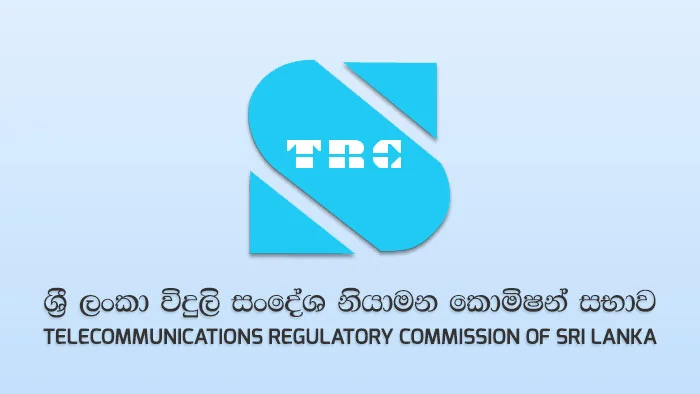
In an era of rapid technological advancement, one would assume that losing a mobile phone could be addressed swiftly and efficiently. However, for a close friend of mine, Anura (not his real name), a senior professional and well-connected individual, the ordeal of tracing his lost iPhone 15 exposed a web of systemic inefficiencies, poor communication, and hidden truths.
Anura lost his phone on 15 Dec., 2024, while travelling in a Colombo suburb. What followed was a grueling process that highlighted the bureaucratic labyrinth ordinary citizens must navigate. Acting on the advice of two telecommunications veterans, he embarked on a quest to retrieve his phone only to encounter roadblocks at every turn.
Ravi, a retired IT engineer with over four decades of experience, outlined a standard procedure: file a police report, present it to the mobile network provider, and let the Telecommunications Regulatory Commission (TRC) handle the rest. Siri, a board member of a prominent telecom network, confirmed that bypassing the police was not an option due to legal requirements.
Despite their expertise, neither expert was aware of a critical fact: the phone-tracking system had been compromised in 2022. Anura’s initial attempts at the police station were equally disheartening. Officers refused to provide him with a copy of his complaint, citing outdated practices, and he spent hours navigating red tape before finally obtaining a certified copy.
With the police report in hand, Anura visited the TRC in Narahenpita. The experience was no less frustrating. Initially directed back to the police by security staff, Anura had to argue his way into the premises. Inside, a polite but unhelpful officer informed him that the system for tracing lost phones had not been operational since 2018.
The officer defended the TRC’s actions, stating they had informed the Inspector General of Police of the changes, expecting the information to trickle down to individual stations. Anura, however, was unimpressed. “This top-down communication approach is ineffective,” he argued, highlighting the needless time, effort, and money wasted by citizens due to a lack of public awareness.
During his discussions, Anura uncovered an unsettling truth: the phone-tracking system was compromised.
“Your problem,” Anura told the TRC officer, “is sending people here and there without telling them the truth. If criminals know the system is down, they might exploit it—but hiding it isn’t the solution.”
Frustrated but undeterred, Anura vowed to bring the issue to light. He criticised the TRC for its lack of accountability, calling for a more proactive approach to public communication. “If I were the minister or the PM, I would prioritise making citizens’ lives easier and saving public resources,” he said.
On his way out, Anura ensured he had proof of his visit by photographing the TRC’s logbook, documenting yet another step in his relentless pursuit of accountability.
Anura’s experience serves as a cautionary tale about the consequences of poor communication and systemic inefficiencies. It underscores the urgent need for:
Transparent Communication: Regulatory bodies like the TRC must ensure critical updates reach all stakeholders, including the public, in a clear and accessible manner.
Streamlined Processes: Citizens should not have to endure unnecessary delays and expenses to resolve simple issues.
Accountability: Authorities must take responsibility for addressing systemic failures instead of deflecting blame.
As citizens, we must demand better. Until then, stories like Anura’s will remain a stark reminder of the work that still needs to be done.
The aforesaid incident highlights the need for transparent communication, streamlined processes, and greater accountability from regulatory bodies. Anura’s ordeal is a wake-up call for systemic reform to save citizens from unnecessary inconvenience and wasted resources.
Eng. P. N. D. Abeysuriya
Colombo
-

 Features6 days ago
Features6 days agoThe recovery has begun
-
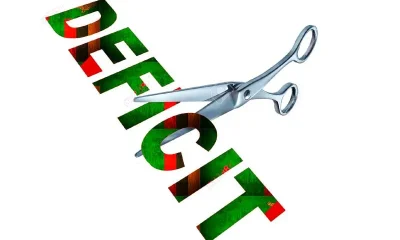
 Business7 days ago
Business7 days agoSri Lanka budget deficit decreased by Rs. 487 bn in first 10 months of 2024
-

 News7 days ago
News7 days agoSita Ratwatte passes away
-
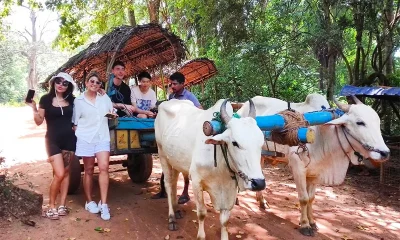
 Business7 days ago
Business7 days agoDigital marketing in high gear to increase tourist arrivals to Sri Lanka
-

 Editorial7 days ago
Editorial7 days agoFlashbacks to war
-
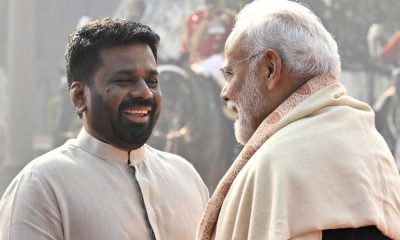
 Features5 days ago
Features5 days agoAKD faces challenging year ahead
-

 Editorial6 days ago
Editorial6 days agoBashing bureaucrats
-

 Editorial5 days ago
Editorial5 days agoA kiri-kekiri issue











